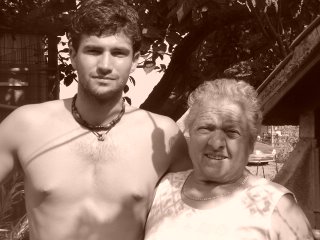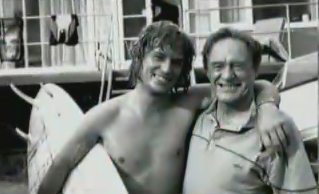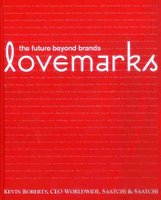the advertising is in our life...


Look this two images..One of this is a famous and a case history spot.. the other, only me and my grandma. But the spot has take the same love, mistey, sensuality and intimacy of mine pic. Why? in which way? look the spot.
the meaning? read this from his ideator, Kevin Roberts who wrote "Lovemarks", one of the best book on advertising.
Cat Stevens was a mega-star of the 1970s with such hits to his credit as Moonshadow, Morning Has Broken, and Peace Train. He converted to Islam in 1977, changed his name to Yusuf Islam, and pretty well left the music business. Since then, he has devoted his time to charities and education in support of his religion. He is very cautious about the use of his music. Many of his songs deal with themes from his life before conversion,and he no longer wants to be associated with them. Little surprise then that he had never allowed any of his songs to be used in TV commercials.
When creatives at Saatchi & Saatchi Wellington got it into their heads to use a Cat Stevens song for a commercial, the first reaction was "find another song." Trouble was, the song they wanted was absolutely perfect: Father and Son.
I was once like you are now,
and I know that it's not easy
to be calm when you've found something going on.
But take your time, think a lot,
why, think of everything you've got.
For you will still be here tomorrow,
but your dreams may not.
Our people didn't just want the song as the background music. The song was the story. An emotional portrait of a most special relationship — afather and son growing together from birth to death.
The client was Telecom New Zealand. Like many other telecommunications companies, they had never been big on emotion. They are under intense pressure every minute of every day. The whole industry lives in a waking nightmare of margin-shaving, competition, unexpected technology shifts, rising consumer expectations. They usually don't see people's feelings as a priority.
But Telecom New Zealand had been a monopoly and was now confronting competition with energy. They were adventurous and up for a challenge. They knew that when you act like a commodity, you get treated like one — that old vicious cycle. Forget about being loved; it's tough to get even a little respect on the street.
That might have been the end of the story in some places, but our people took it as a personal challenge. They truly believe that `Nothing is Impossible.' A passionate plea to Yusuf was drafted. Sure, permission had never been given before, but that was then. Our people pinned their hearts to their letterand waited. Weeks later as the team sat in the mixing room despairing of even getting a response, they heard the rustle of a fax. It was from Yusuf. He had responded to the visuals accompanying his wordsand the emotional truth of the story. He had written one word on the fax they had sent him pleading to use his song: "Yes."
Since joining Saatchi & Saatchi, I have given hundreds of presentations around the globe. Father and Son is the spot I always play at the end.
In Dubai, Denmark, Los Angeles, London, New York, Sao Paulo, Barcelona, and Sydney, the response never varies. People feel this spot is talking to them personally. Our client wanted a more connected country — Cat Stevens sang the song. His Greatest Hits album moved into the Top 10 CD sales inNew Zealand a month after launch.
this is his cover of his book. I ll speak more about this man in my future post.




0 Comments:
Post a Comment
<< Home